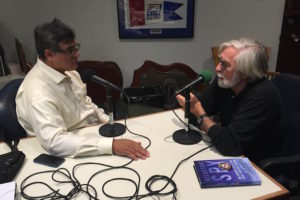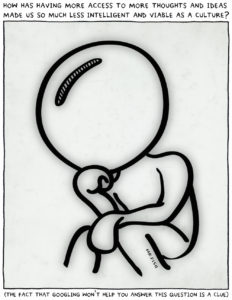The Smartest People On the Move?
What role might basic intelligence play in determining where people choose to live? Psychologist Markus Jokela of the University of Helsinki gives his answer in an upcoming issue of the journal Intelligence.
What role might basic intelligence play in determining where people choose to live? Psychologist Markus Jokela of the University of Helsinki gives his answer in an upcoming issue of the journal Intelligence.
CityLab reports:
On one hand, according to Jokela’s analysis, central cities draw the smartest people from rural, suburban, and outer-urban areas, especially among younger populations. (“In terms of managing cities, I think all the points about how cities try to attract ‘talent’—measured in terms of skills, education, etc.—apply,” he tells CityLab.) On the other hand, city centers also lose many of their brightest to these areas at some point in time.
“The most general message is that the selective residential mobility we observe associated with socioeconomic status has its psychological underpinnings in intelligence differences,” says Jokela.
Jokela based his analysis on a long-term study of young Americans initiated in 1979 that tracked the same participants over time. From this nationally representative sample, Jokela focused on nearly 11,500 people who had been between ages 15 to 23 at the start of the study and who’d been involved in at least one follow-up survey by 1996. He identified where these people lived at baseline (the four place categories being rural, suburban, urban, and central city) and where they lived at the time of the follow-up. Then, he compared this movement (or lack thereof) to cognitive scores determined by a battery of intelligence tests.
The first clear finding was that people who moved to central cities from less urban areas had higher intelligence scores. People who lived in rural areas at the initial survey and remained there at the follow-up, for instance, scored in the 46th percentile of cognitive ability (charted below, far left line). Those who started in rural areas and moved to the suburbs scored in the 50th percentile. Those who started rural then moved to urban areas reached the 54th percentile. And those who started in rural areas and ended up in city centers hit the 57th percentile—an 11-point gap over those who stayed put.
Read more here.
— Posted by Alexander Reed Kelly.
Your support matters…Independent journalism is under threat and overshadowed by heavily funded mainstream media.
You can help level the playing field. Become a member.
Your tax-deductible contribution keeps us digging beneath the headlines to give you thought-provoking, investigative reporting and analysis that unearths what's really happening- without compromise.
Give today to support our courageous, independent journalists.





You need to be a supporter to comment.
There are currently no responses to this article.
Be the first to respond.